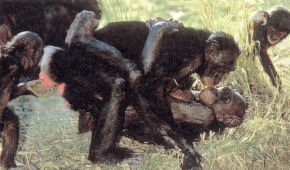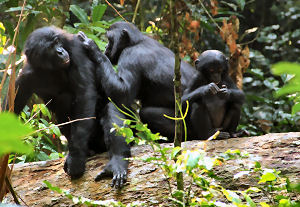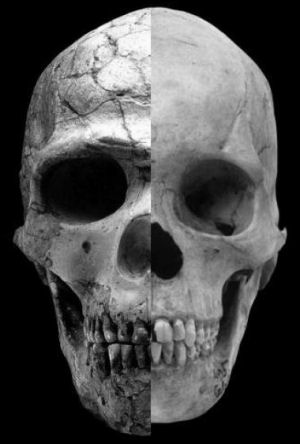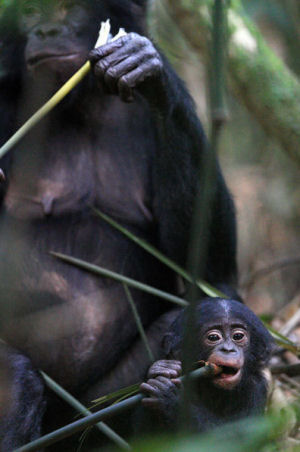 Unlike their chimpanzee relatives, bonobos enjoy a make-love-not-war image. But a new study in Current Biology offers the first direct evidence of wild bonobos hunting and eating the young of other primate species. “These findings are particularly relevant for the discussion about male dominance and bonding, aggression and hunting – a domain that was thought to separate chimpanzees and bonobos,” said researcher Gottfried Hohmann of the Max-Planck-Institute for Evolutionary Anthropology.
Unlike their chimpanzee relatives, bonobos enjoy a make-love-not-war image. But a new study in Current Biology offers the first direct evidence of wild bonobos hunting and eating the young of other primate species. “These findings are particularly relevant for the discussion about male dominance and bonding, aggression and hunting – a domain that was thought to separate chimpanzees and bonobos,” said researcher Gottfried Hohmann of the Max-Planck-Institute for Evolutionary Anthropology.
Bonobos live only in the lowland forest south of the river Congo, and, along with chimpanzees, they are humans’ closest relatives. Bonobos are perhaps best known for their promiscuity: sexual acts both within and between the sexes are a common means of greeting, resolving conflicts, or reconciling after conflicts.
The researchers have now seen three instances of successful hunts in which bonobos captured and ate their primate prey. In two other cases, the bonobo hunting attempts failed. The data from LuiKotale showed that both bonobo sexes play active roles in pursuing and hunting monkeys. The involvement of adult females in the hunts (which is not seen in chimps) may reflect social patterns such as alliance formation and cooperation among adult females, the study notes.
The discovery challenges the theory that male dominance and aggression must be causally linked to hunting behavior, an idea held by earlier models of the evolution of aggression in human and non-human primates.
Related:
Bonobos Put One Over Chimps
Guess Who’s Coming To Dinner?
Chimp Culture Human-Like
Human – Chimp Differences A Matter Of Lifestyle
Early Humans And Chimps Much More Than Just Good Friends
Missing Link A Tripping Chimp?


















Comments are closed.